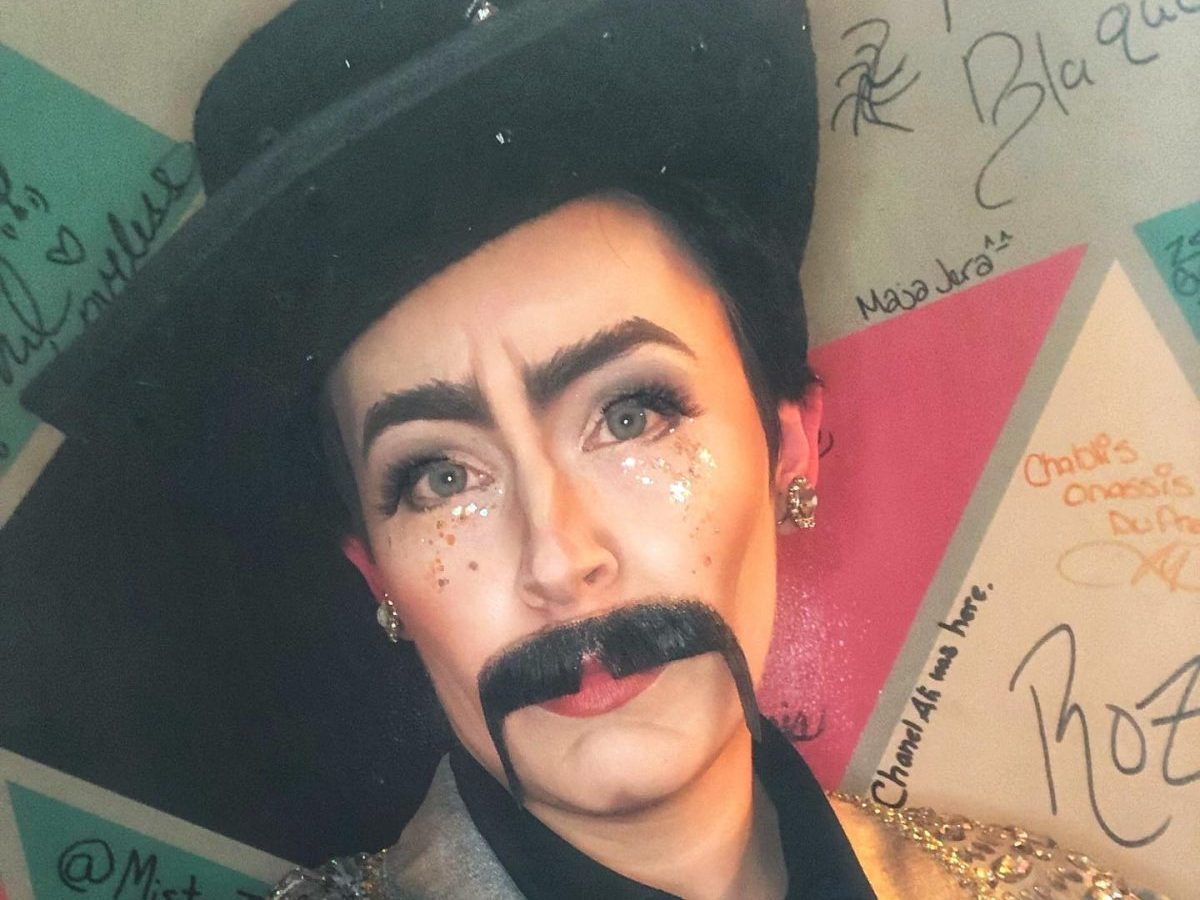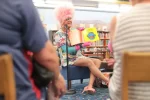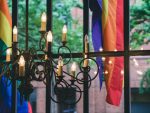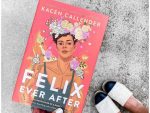When someone thinks of drag, they probably first think of “RuPaul’s Drag Race.” Don’t get me wrong, I love RuPaul’s reality competition show. The only thing? I love local drag even more. While mainstream media can be entertaining, local artists are more interesting to watch and therefore superior. Plus, it’s always fun to interact with the performers in person, which is something you can’t do when watching “Drag Race.”
There are many reasons why local drag matters to me. It’s good for young people, old people and everyone in between to see that they can be proud of themselves for who they are.
Drag has changed my life. After a terrible breakup, I felt lost. I needed something to focus on that didn’t remind me of my ex, so I started going to drag shows. There, I made the best of friends and found my new favorite hangout spot — the local gay bar.
Local drag is also a guaranteed good night out. The shows are not expensive, and there’s always a fun mix of music, dancing and comedy to anticipate. It is truly a beautiful art form. Seeing queens and kings express themselves through makeup, wigs, outfits and music inspires me to spend time on what I love — writing.
I spoke with some local drag artists about their experience with the art form and why it matters to them. I figured they would have good insights to share, especially since I’ve only regularly attended shows for about six months while many of them have been performing for more than six years.
Desiree Bouvier
Desiree Bouvier started doing drag while she was studying at Wabash College. Her best friend, queen Lala Luzious, needed performers for an annual charity show. Bouvier performs mostly during the Halloween season and says drag started off as just a hobby. Bouvier’s persona was born in 2019 when she felt she was finally ready to perfect the craft. She began performing regularly in 2021. Ever since, Bouvier has been killing it. She can be found performing at weekend shows and brunches as well as hosting open-stage events at local gay bars. The queen loves mentoring up-and-coming performers and says she wouldn’t be where she is today without drag mother Mahogany Charlotte, drag sisters Silky Nutmeg Ganache and Lala Luzious, and other drag legends such as Pat Yo Weave and Miss Gay Indiana winners Tia Mirage Hall and Ana Crusis.
When asked about her take on the topic, Bouvier says, “Local drag is important because it truly does bring people together. It is a way for us to connect with our community and a way for us to create community from within. It allows people to be creative. It allows people to escape their everyday life. It allows people to become familiar with new artists. It allows people to create friendships. It allows people to create family. All these things are important in creating a happy, safe, and inclusive community.” I couldn’t agree with Bouvier more. She always has a great way of expressing what people are feeling.
Juniper Perón
Juniper Perón began her drag journey at 21 years old. Her friend Mary helped her with makeup at first, but she started learning how to paint her own face on YouTube soon after. On the topic of performance and drag, she remarks, “It’s been a very cathartic way of expressing my femininity, emotions and personality in a way that you wouldn’t see meeting me at first glance in my day to day.” Perón’s muses include musical artists such as Jessie Ware, Caroline Polachek, Lana Del Rey, Florence + the Machine and others. Lately, she’s leaned into more masculine musical influences as well, drawing on bands like Linkin Park and Weezer.
Perón feels that local drag is important “because there is so much talent.” She goes on to say, “You really have no idea how many amazing performers there are until you come out. I love seeing what my favorite performers and friends put on stage.” I agree with Perón’s take. In every show, there is always something to appreciate.
Verna Vendetta
Verna Vendetta is a drag king who happens to be allergic to pumpkins. When interviewed, they specifically told me to share this with readers.
Vendetta started doing drag officially in 2015, but they have always preferred masculine clothing. As a teenager, they would dress up as David Bowie instead of wearing the typical ‘80s fashion. Their influences include glamorous men, butch women and “Saturday Night Live” skits from the ‘90s and ‘00s. Local drag is very important to them: “The biggest positive impact to be made,” they explain, “is made locally. I’m not seeking fame, I’m aiming to better the community I live in.” Vendetta does drag so that queer kids and their parents can see an example of someone who actually made it in the industry.
Vendetta wants to better their community by helping drag kings become more prominent. They suggest that “owners of gay bars who don’t have any shows produced/hosted by drag kings need to change that.” They continue, “Drag shows that don’t have any kings in the cast need to change that. Drag fans who don’t notice an absence of kings in their scene need to change that.” I agree with Vendetta, which is why I do my best to attend shows with plenty of kings in them — and I annoy my friends into coming with me.
Tia Mirage Hall
Tia Mirage Hall, who was recently crowned Miss Gay Indiana, started doing drag in 1999 at an open stage show at Stars, a bar in Indianapolis. She had always danced and did theater through school, but when she saw her first drag show, she knew she had to be a part of its world.
“Local drag is needed because it helps you see a community working together to help each other. Drag has raised money for countless of organizations and people for years,” Hall explains, saluting the “queens who only do that because they love to help.” Hall goes on to praise the Bag Ladies, a group of drag queens and kings that fundraises for queer organizations through their performances.
Hall shares that her favorite thing about drag is the confidence boost she gets from her fans’ support. She loved competing for Miss Gay Indiana because “of the sisterhood and brotherhood” of the pageant. She explains, “I dressed and watched the system since early 2000, and I saw all the formers come together and just have a great time when they got together.” Reflecting on her experience, the queen exclaims, “I wanted that, a family!” Hall has a great point here: Drag really is a family. Once you attend a handful of shows, the performers get to know you, and it feels like you’ve known the world for your whole life.
















